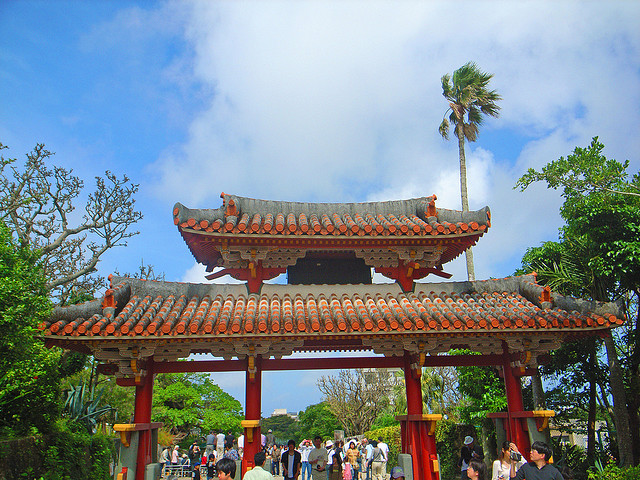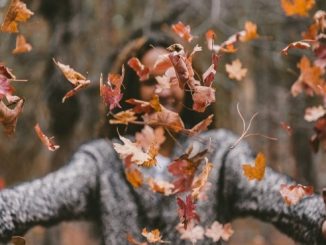
The book ‘The Okinawa Program – Learn the Secrets to Healthy Longevity’ is a good book for anyone who wants to understand how nutrition and exercise helped the Okinawans live longer. At first thought, you may think they lived longer due to their genetics. While genetics may have played a role, lifestyle is a highly influential factor. The book provides an example where the younger generation who abandoned their old ways and moved towards the Western diet also started getting Western diseases at a younger age. They were not healthy any more like their parents and grandparents.
Twin brothers Bradley and Craig Willcox (internist and anthropologist) along with Makoto Suzuki (geriatrician) wrote this book based on years of study of the Okinawan culture.
Dr. Makoto Suzuki first started his research in the mid-seventies and he found that centenarians were in lean, youthful-looking and athletic. These elders had healthy arteries with low cholesterol due to their diet, regular exercise, moderate alcohol use and positive spiritual outlook. They also ate lots of natural unprocessed food which contained a great amount of fiber. They had a very low risk for cancer as well. While genetics may have played some role, their lifestyle determined the ultimate outcome. So the lesson is: if we want to, we can change our life course even if Mother Nature gave us a poor set of cards.

If we want to live longer like the Okinawans, we need to examine whether their lifestyle played a key role. The authors researched their culture and lifestyle for 25 years and came up with a conclusion that nutrition, fitness, social relationships and spiritual connectedness matter a lot.
So can we learn anything to improve our health from the Okinawans? The answer is we can. Eating a high-carbohydrate, low-calorie, plant-based diet is the diet adopted by this culture. It is also important to eat only until you are 80 percent full. Binging one day and starving another day will not work. Most people in the US are scared of carbs and they resort to high protein diet. In fact, eating mostly complex carbohydrates from whole grains is very healthy. Fat is also essential because it provides the raw materials to make hormones and develop the nervous system including infant brain. Not all fats are created equal. Saturated fats and trans fat are the bad fats, while unsaturated fat is critical for our health.
I found interesting that the book mentions about anthropological studies which debunk the pop nutrition claim that hunter-gatherer societies mostly ate meat. The truth is that they ate lots of wild fruits and vegetables with animal protein. So it is important not to neglect plant-based grains and vegetables in your diet.
In addition to nutrition, fitness is a part of Okinawan lifestyle. They believe in fitness exercises that meet three criteria: anaerobic, aerobic and flexibility. Martial arts exercises such as karate, judo, kung fu and taekwondo meet all of these three criteria. Okinawans also walk a lot and all of us can start walking more even if we are not ready for martial arts yet.
Meditation , breathing techniques and social relationships help this culture in managing stress. The culture encourages people to be optimistic. Some of these ideas can easily be used in the Western culture as well to manage stress.
The book also recommends integrative health care that incorporates both Eastern and Western Healing. Okinawans use both methods for their healing. They use natural herbal tonics to treat their illnesses. The benefit of natural herbs is that they have relatively less side effects compared to modern pharmaceutical drugs.
Some people assume that we need expensive drugs and treatment to stay healthy. As the Okinawa research shows, the truth is that traditional lifestyle embraced by this culture is more effective than any modern drugs. I agree that it is difficult to live like the Okinawans in the city, but it is possible to incorporate a balanced plant-based diet and fitness program to improve our health.
Overall, this book is not just about recounting the fascinating story about the Okinawans and connecting their lifestyle to longevity. It provides medical evidence and research to back up their findings. It analyzes their food choices and looks at the modern research findings about the benefits of some of the foods and herbs they consume.
In this review, I just provided a simple overview of what this book is about. If you are interested in learning more specific information about recipes and specific fitness activities in the Okinawa Program, the book provides further details in a fun way. Even if you are a non-technical person who does not understand anything about nutrition, this book is fun to read and understand.





I have read this book too. There is so much we can learn from other cultures to stay healthy, and we do not need to reinvent the wheel.
Hey people!!!!!
Good mood and good luck to everyone!!!!!